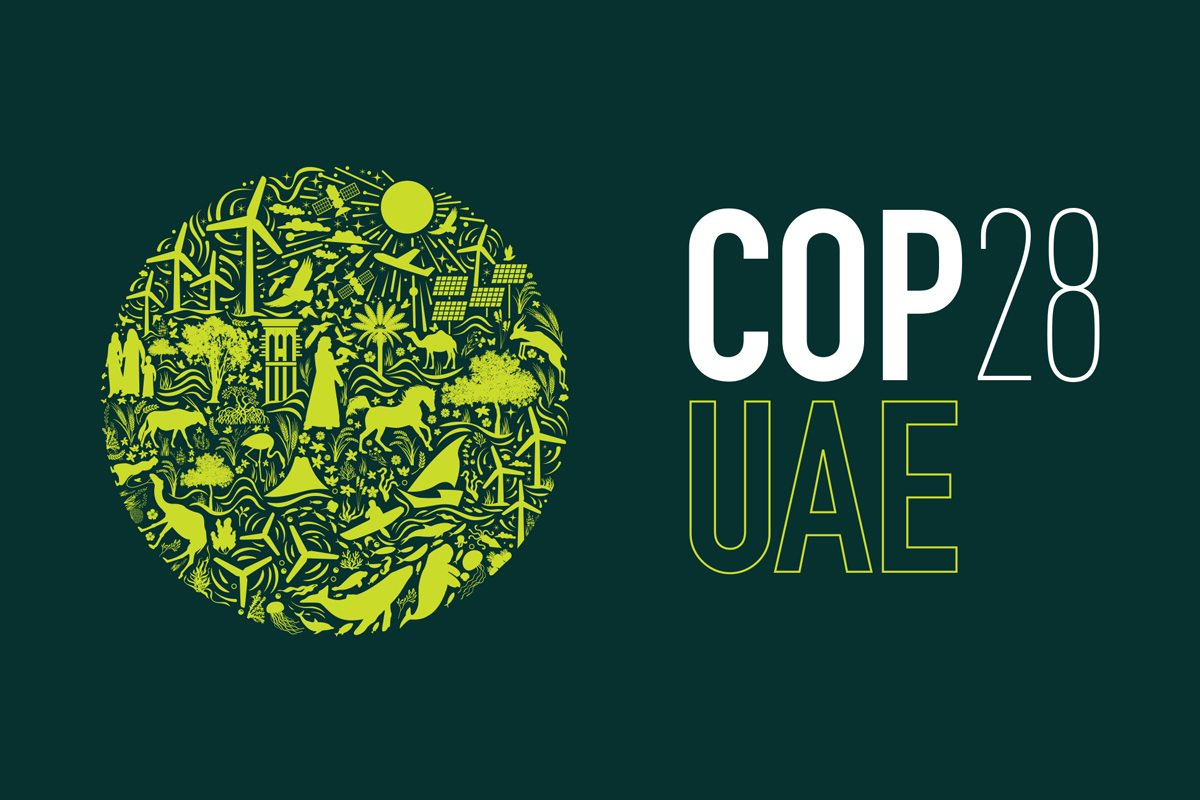

Amid the 2024 elections, Pulse on Political Narratives is a first-of-its-kind, AI-powered study identifying what candidates across the political spectrum are saying about issues that matter to companies and their stakeholders.
This UN’s climate summit, COP 28, will be held at Expo City in Dubai, UAE from November 30 to December 12, 2023. COP 28 is expected to convene over 70,000 participants, including heads of state, government officials, industry leaders, academics, and representatives from civil society organizations.


The agenda items for COP 28 will be discussed at several events in the months ahead. Pre-COP negotiations with the parties (the 197 nations that are signatories to the UN Framework on Climate Change) will be held at the Bonn Climate Change Conference on June 5–15, 2023. France will host a climate finance summit on June 22–23 to discuss finance and promote private sector investment in low-income countries. Climate policy will also be on the agenda at the G7 Summit in Hiroshima, Japan on May 19–21, at the G20 Summit in Delhi, India on September 9–10, and at the annual meetings of the World Bank Group in Marrakesh, Morocco on October 13–15. The UAE government will influence the agenda in its role as the COP 28 President and is focused on solidarity between the global North and South and urging businesses to be fully engaged in the summit.
Here are some of the agenda items to watch:
Loss and Damage
The loss and damage agreement reached at COP 27 was pushed by many low-income countries that have been impacted by climate change but lack finance resources to address it. Many questions were unanswered. A committee of 24 countries representing all global regions and co-chaired by South Africa and Finland are developing a plan for paying into the fund and eligibility to receive funds, with the goal to present its recommendations at COP 28. This is likely to be the most contentious issue this year.
Climate Finance
2023 will most likely be the year the yearly $100 billion climate finance threshold is passed. High-income economies are also under growing pressure to reform and capitalize international financial institutions, such as the World Bank and the regional development banks, to shift more money into climate projects. President Biden recently announced a $1 billion US contribution to the Green Climate Fund — the first US payment into the fund for developing country climate finance since 2017.
Global Stocktake
This is a process for taking stock of the implementation of the Paris Agreement globally. The process began at COP 26 is currently in its second phase: a technical assessment period ending in June. This includes in-person dialogues focused on the Stocktake’s three themes of mitigation, adaptation, and implementation and support. The UN is now receiving submissions from countries, cities, the private sector, philanthropists, academics and others. Findings will be presented and discussed at COP 28 as part of the third and final phase of the process. Each Stocktake is a two-year process that happens every five years. There’s no agreed course of action for what happens if, as expected, countries are revealed to be falling behind.
Early Warnings
At COP 27, the UN launched an ambitious plan to set up a global early warnings system. The plan will require funding of $3.1 billion over the next five years. At COP 28, the focus will be on commitments to finance implementation from donors, global funds and the private sector.
Just Energy Transition Partnerships (JETPs)
These are G7-led partnerships that use blended public-private finance to help emerging economies transition away from coal to a renewable energy mix. Plans have been announced for Indonesia, South Africa and Vietnam, with others for India and Sri Lanka expected this year.
Adaptation
At COP 26, countries agreed to launch a two-year work program to translate the Global Goal for Adaption (GGA) into concrete actions. The framework for the GGA will be discussed during workshops in the lead-up to COP 28 to be adopted at COP 28.
Food Systems
At COP 27, countries agreed on a four-year plan on agriculture and food security. The UNFAO is expected to release a road map to reduce emissions from food and agriculture systems in line with the Paris Agreement.
Ocean Systems
The importance of ocean ecosystems and oceanic life will be presented at COP 28. Issues include how to combat illegal fishing, protect and restore marine and coastal ecosystems, and promote ocean-based climate action such as by decarbonizing shipping and increasing offshore renewable energy.
Beyond the official agenda, other issues are likely to be part of the political dialogue, business and NGO activism, and media focus in the run-up and during the event, including:
UAE as the Host of COP 28
The host country is developing major oil and gas expansion projects. It plans to add 7.6 BBOE to its production portfolio with investments of $150 billion over the next five years. Sultan Al Jaber, CEO of the UAE’s national oil company, Adnoc, has been controversially appointed president of COP 28.
Oil and Gas in the Middle East
COP 28 will be held is the geographical center of the world’s hydrocarbon industry. While many countries and industries are working on energy transition plans and seeking to attract funding to fulfil them, country plans across the Middle East region are controversial and necessary to accelerate. At COP 27, the UAE was quiet on the issue of phasing down fossil fuels, while Saudi Arabia voiced opposition.
Role of Business
Businesses and brands will face heightened scrutiny and be expected to increase the pace and scale of their climate action in advance of COP 28. There will be calls for greater transparency around climate-related risks and opportunities, as well as demands for stronger commitments, investments and actions to reduce GHG emissions and accelerate sustainable business practices.
AI Innovation around Climate
AI can contribute to addressing climate problems by collecting and managing large amounts of climate-related data, advancing research, and fostering effective environmental governance. But there are concerns that AI utilizes natural resources and large quantities of energy to build and use AI devices and products, which emit greenhouse gases throughout their lifecycle. Beyond AI platforms themselves, extensive energy is required to run machine-learning algorithms.
Rise in Climate Trade Protectionism
Trade is a key multiplier in accessing technologies vital to the climate transition. But protectionist tendencies pose a threat to the flow of trade in climate products. The European Union, Japan and South Korea have expressed concern over the US Government’s efforts to favor domestic production of electric vehicles, batteries and other green technology products. In response, the EU is developing its own incentives and subsidies. Diplomats and trade officials must ensure subsidies and domestic manufacturing requirements create the right mix of global competition and cooperation rather than feed protectionism that could slow the clean energy transition.
Awareness of Climate
Awareness of climate is rapidly growing as consumers proactively seek out and appreciate brands acting responsibly. An estimated 64% of Gen Z consumers are willing to pay more for products and services which are environmentally friendly. For some time, many brands have made superficial claims or lacked execution to achieve their climate objectives. Elsewhere, there are brands that are performing well but have not integrated it into their communications strategy. Brands must regard the environment as a key pillar of their business, communicating this at every opportunity — including milestone events such as the annual COP summits — with authenticity and not as a marketing ploy.

Author
Washington DC | International consultant to governments, multinational corporations and foundations on global economic, trade, development and climate issues.

Amid the 2024 elections, Pulse on Political Narratives is a first-of-its-kind, AI-powered study identifying what candidates across the political spectrum are saying about issues that matter to companies and their stakeholders.